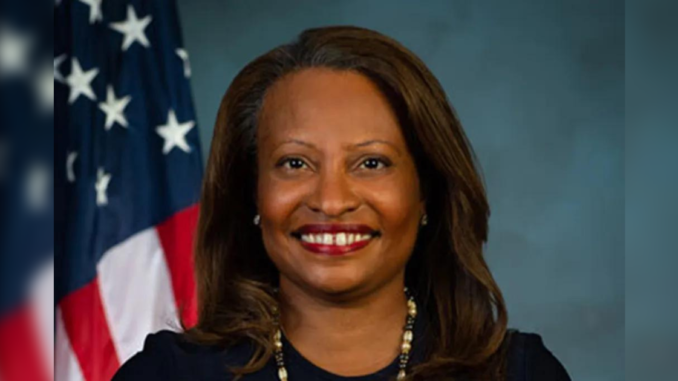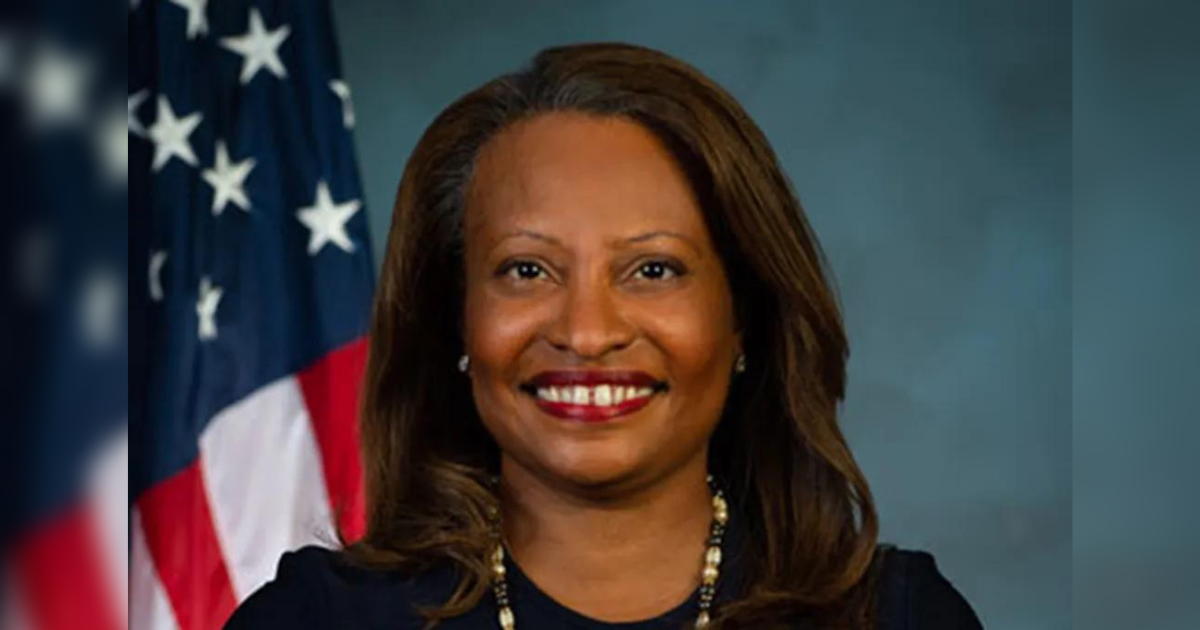

Adrianne Todman. | Source: U.S. Department of Housing and Urban Development
Here’s everything to know about Marcia Fudge’s successor.
The unexpected announcement of U.S. Housing and Urban Development (HUD) Secretary Marcia Fudge’s forthcoming resignation paved the way for President Joe Biden to name the person who will fill the future vacancy in his cabinet.
Adrianne Todman, who is currently the Deputy HUD Secretary, will become acting HUD Secretary once Fudge’s resignation takes effect on March 22.
Who is Adrianne Todman?
Todman is described in her official HUD bio as someone who “has dedicated her career to improving people’s lives and strengthening neighborhoods through housing and strong community development.”
Prior to joining HUD, Todman was CEO of the National Association of Housing and Redevelopment Officials (NAHRO) from 2017 until her confirmation as Deputy HUD Secretary in 2021. Todman was confirmed unanimously nearly three months after she was nominated for the position.
Todman filmed a brief introductory video for HUD upon her confirmation so the nation could get to know her better.
While leading NAHRO, Todman “Todman rightsized the association’s expenditures, restructured business functions, brought on new talent, and diversified revenue sources,” NAHRO’s website says. “She also focused on creating a member-centric culture at the association, raising the profile of the critical work undertaken by housing professionals, and advocating for funding and common-sense policy development that preserves and develops affordable housing, and helps families and communities thrive.”
While Todman has kept a relatively low profile while at HUD compared to Fudge — who has been the face of the agency since being confirmed in 2021 — she has steadily promoted HUD programs via her social media channels.
Just this month, Todman took to her account on X, formerly Twitter, to boast of HUD programs, including new actions that the Biden administration said will boost the nation’s housing supply, lower housing costs and bring more affordable housing to citizens by converting commercial properties to residential use.
According to Todman’s bio, she is perfectly equipped to lead HUD.
Prior to being CEO at NAHRO, Todman was the executive director of the District of Columbia Housing Authority, where she “focused on strengthening the agency’s business practices and secured unqualified independent audits each year during her tenure.”
The native of the U.S. Virgin Islands also previously worked at HUD before being confirmed as its deputy secretary.
She previously managed HUD’s $500 million grant competition to redevelop “distressed public housing sites” and also served in. HUD capacity as a policy aide in the Office of Public and Indian Housing and the Office of the Secretary.
What happened to Marcia Fudge?
Fudge, 71, a Democrat who represented Ohio in Congress from 2008 to 2020, is one of a handful of Black cabinet secretaries Biden handpicked following his historic election. She is also just the second Black woman to lead the government agency.
In a note to her staff on Monday, Fudge didn’t provide a reason for what she called her “retirement” from HUD, according to POLITICO.
The U.S. Senate confirmed Fudge as HUD Secretary on March 10, 2021. She followed in the footsteps of Patricia Harris, the first Black woman HUD Secretary who was appointed to the position in 1977 by President Jimmy Carter.
Fudge took over leadership from embattled HUD Secretary Ben Carson, a former doctor who had no prior experience in civil rights or housing policy before being successfully nominated by former President Donald Trump.
During her confirmation hearings, Fudge vowed to dedicate her efforts to eliminating discriminatory housing practices and boosting Black homeownership, two pillars of the Biden administration’s equity plan for Black and low-income Americans.
Because of the harsh realities of the COVID-19 pandemic, Fudge said she would immediately prioritize providing rental assistance to households at risk of eviction.
“We cannot afford to have people–millions of people evicted from their homes or their apartments, because the problem then just gets worse it doesn’t get better,” Fudge said at the time. “I understand that there are some who believe that we are doing more than we should, but I believe we are not doing enough.”
Since then, Fudge went on to achieve success with HUD programs like the Bridging the Wealth Gap initiative, which allocated $113 million in funds to help low-income families increase their earned income and improve financial stability.

Be the first to comment